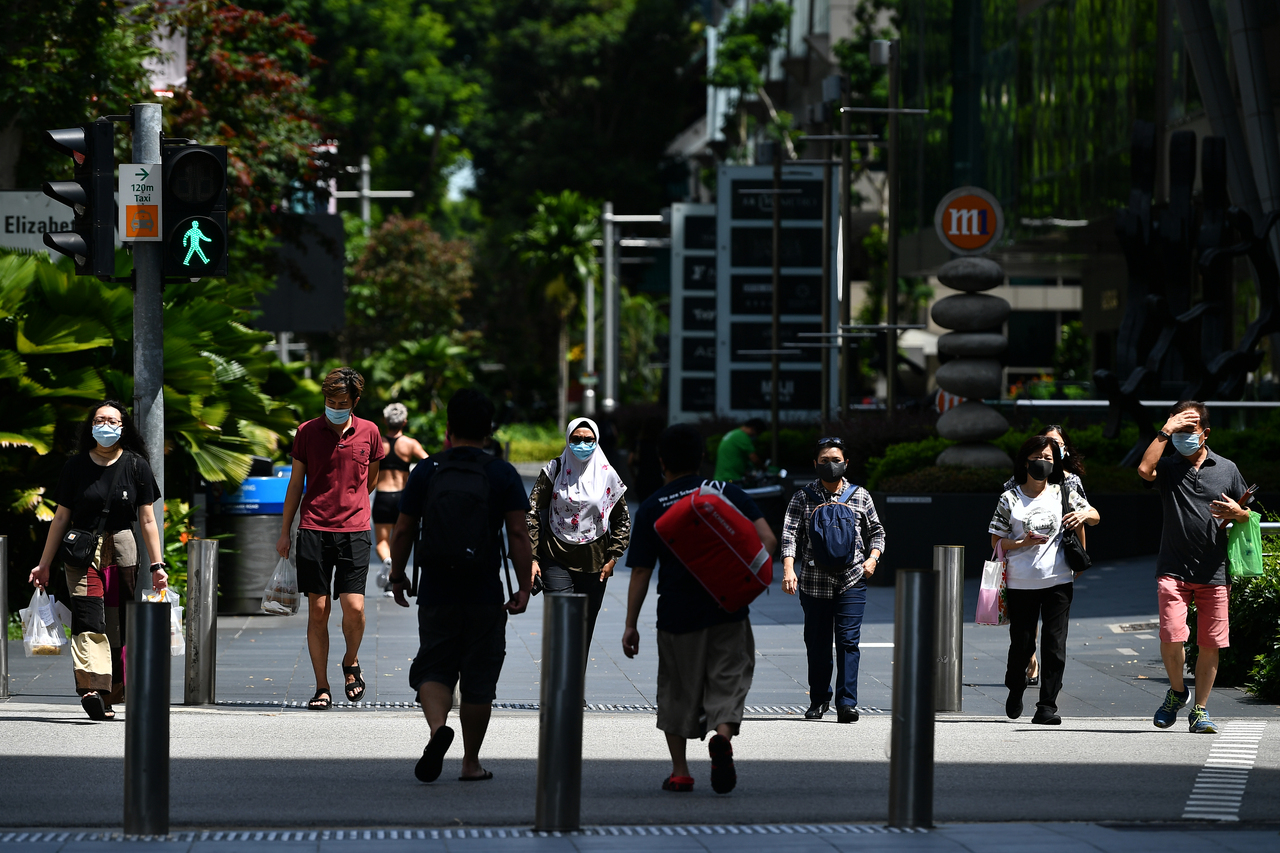Singapore headed for deeper recession and more job losses
MTI forecasts economy will shrink by 4% to 7%, making it the worst recession since independence
Sign up now: Get ST's newsletters delivered to your inbox

There is still considerable uncertainty and the country must be prepared for more retrenchments, said a Ministry of Manpower official.
PHOTO: ST FILE
Singapore will sink into a deeper than expected recession this year, according to the latest forecast figures amid worsening global demand and the expected impact of circuit breaker measures at home.
The Ministry of Trade and Industry (MTI) forecast that the Singapore economy will shrink by 4 per cent to 7 per cent, worse than the 1 per cent to 4 per cent contraction earlier predicted - making it Singapore's worst recession since independence in 1965.
While the Government may continue to cushion the economic fallout of the Covid-19 pandemic, the outlook for the economy and especially jobs may further deteriorate.
There is still considerable uncertainty and the country must be prepared for more retrenchments, said a Ministry of Manpower official at a virtual press conference yesterday.
Any recovery, which is dependent on the success of fiscal and monetary measures at home and abroad, is likely to take shape only some time in the second half of the year, MTI added at the briefing.
The ministry said there were significant uncertainties in the global economy, with a risk that subsequent waves of coronavirus infections in major economies such as the United States and euro zone could further disrupt economic activity.
Also, a growing perception of diminished ability to use fiscal and monetary stimulus in many major economies could damage confidence in the authorities' ability to respond to shocks.
"Against this backdrop, the outlook for the Singapore economy has weakened further since March," MTI said.
Briefing the media, MTI Permanent Secretary Gabriel Lim said that outward-oriented sectors such as manufacturing, wholesale trade, and transportation and storage will be adversely affected by the sharper-than-expected slowdown in many of Singapore's key markets, as well as more prolonged supply chain disruptions.
Highlighting the risks, Enterprise Singapore (ESG) announced another cut in its outlook for non-oil domestic exports (Nodx).
Nodx is now forecast to shrink by 1 per cent to 4 per cent this year, down from ESG's earlier projection of minus 0.5 per cent to 1.5 per cent made in February.
Nodx posted a 5.8 per cent year-on-year increase in the first three months of the year, attributed largely to a low base last year for specialised machinery, pharmaceuticals and non-monetary gold.
Mr Lim said the phased lifting of circuit breaker measures may keep domestic economic activity depressed for a longer period.
Analytics firm Oxford Economics estimated that private consumption contracted 1.6 per cent year on year in the first quarter after expanding 2.6 per cent in the fourth quarter. Fixed investment grew 1.6 per cent and government consumption growth almost doubled to 8.5 per cent, it added.
MTI said the construction and offshore and marine sectors were hit due to manpower shortages.
Ms Selena Ling, head of treasury research and strategy at OCBC Bank, said the downward revision was anticipated and implies a significant drop in second-quarter growth momentum due to the circuit breaker. "Fiscal policy will do the heavy lifting, to mitigate the expected softening in the domestic labour market," she said.
MTI yesterday also said the economy contracted 0.7 per cent year on year in the first quarter, better than the 2.2 per cent drop earlier estimated. That was made possible by the "pockets of resilience" in the Singapore economy, it said.
Biomedical manufacturing is expected to continue to expand, supported by the production of pharmaceutical and biological products.
Among services, information and communication (ICT) services will be backed by demand for IT and digital solutions.
DBS Bank noted the first-quarter performance was aided by a 16.5 per cent surge in industrial output in March, lifting the quarter's manufacturing growth to 6.6 per cent.
"This has provided a much-needed jab in the arm for the economy, offsetting partially the drag from the service sector," said the bank's senior economist Irvin Seah.
"This is in line with our projection that service industries which are more digitalised will better weather the pandemic," he said.
Financial and ICT services will likely outperform this year and they will also bounce back faster in the recovery phase, Mr Seah predicted.
Still, DBS kept its full-year growth forecast unchanged at minus 5.7 per cent.
Mr Barnabas Gan, an economist at UOB Group, also maintained his 2020 gross domestic product estimate of minus 4 per cent.
"The economic environment remains extremely uncertain at this juncture, especially given the phased easing of Singapore's circuit breaker measures," he said.


